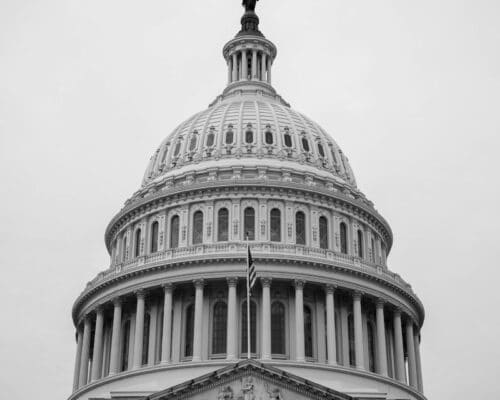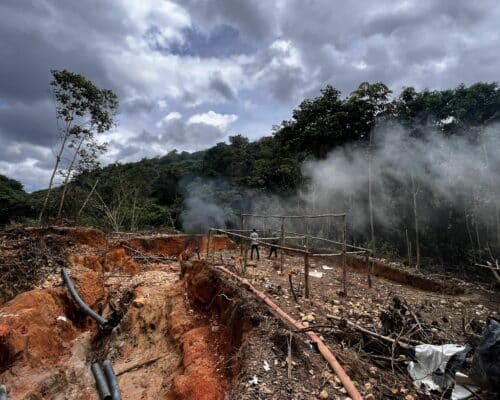Fossil Fuel

Trump Quits the Paris Agreement: The Consequences
Experts say that while Trump's decision will significantly impact global climate action, it won't derail it since the clean energy transition is already underway. The economic reasoning behind it is too strong to ignore. However, other nations must unite and increase their efforts to protect the most vulnerable.

Deforestation: Causes, Effects and Solutions
Deforestation is a significant burden on the world's economy and environment. However, it is primarily driven by agricultural expansion, which is critical to keeping up with growing food demands. Tackling this issue requires a multifaceted approach that balances regulation and sustainable development.
Biodiversity Loss: Causes, Effects and Solutions
Biodiversity is crucial for global ecosystems and the associated services that humans rely on. However, biodiversity loss is increasing exponentially due to human activities. Changing this trend is a crucial step in regional and global climate action.

Air Pollution: The Silent Global Epidemic
Air pollution directly results from human industrialisation and has countless health and economic consequences. However, it remains a challenging issue to tackle, as it requires stringent government policy and societal changes.

Top 10 Current Environmental Issues In the World In 2025
The planet faces a myriad of environmental issues that stem from human actions. As the global population has increased along with economies modernising, the demand for natural resources and pollution rates have increased exponentially. This has placed a growing level of stress on the planet's natural systems – many of which are showing signs of wear.

Exposing The Cons Of Fossil Fuels
Fossil fuels dominate the global energy mix yet have many cons that make them ill-suited for long-term use. Our existing reliance on fossil fuels is a significant social, economic and environmental risk. Renewable sources provide a sustainable long-term alternative.

When Will Fossil Fuels Run Out?
Fossil fuels are finite, and the world's reserves are running out. This is primarily driven by the world's continuously growing demand for energy. Renewable energy adoption must be expedited to fill this energy gap and speed up the transition from fossil fuels.

The Advantages and Disadvantages of Nuclear Energy
Nuclear energy has recently gained more attention after its slowdown in the early 2000s. However, nuclear energy still presents many challenges, making renewables like solar and wind the better long-term energy solution.

What Asia’s Financial Industry Can Learn From Europe’s Climate Leadership
Through regulatory intervention and voluntary action, the EU and its financial industry are leaving the fossil fuel era behind. While Asian banks and investors remain deeply entrenched in coal, oil, and gas, in the potential absence of the US, they can lead global climate action alongside Europe.

What a Donald Trump Presidency Means For Global Action Against Climate Change
Trump’s win comes as a breath of fresh air to the fossil fuel industry. For many climate scientists and activists, it is no longer a question of whether the global climate crisis will get worse but how worse it will get. The new reality highlights the importance of climate multilateralism, where the EU, China and other nations take the lead.

How the 2024 US Presidential Election Might Change America’s Climate Policy
On Nov. 5, US voters will elect Kamala Harris or Donald Trump as their next president. Aside from the global geopolitical stage, the outcome will also significantly impact the world's decarbonisation journey, the prospects of achieving Paris Agreement goals and the efforts to tame the climate crisis.

Are Carbon Offsets a Scam? A Deeper Look
There is growing scrutiny around the legitimacy of carbon credits. Several high-profile carbon credit scams have come to light in the last several years, undermining the trust in the market. However, carbon credits are an essential tool for decarbonisation, and further oversight is necessary to maintain their value.

What is Carbon Credit Fraud? How Does It Impact Climate Action?
Carbon credit fraud undermines the integrity and effectiveness of the carbon credit market, which is crucial for global decarbonisation efforts. Stricter regulations, improved verification processes and greater transparency are needed to ensure the market's role in mitigating climate change.

Why Are Carbon Credits Bad? The Hidden Dangers of Carbon Credits
The carbon credit market is booming, but many experts believe it has several critical failures that reduce credit effectiveness. With foundational changes, the market can navigate these risks and be a valuable tool for decarbonisation.
Most Popular
Categories
-
9
-
33
-
126
-
4
-
17
-
43
-
52
-
11
-
10
-
15
-
24
-
6
-
6
-
249
-
196
-
14
-
23
-
1
-
1
-
23
-
38
-
42
-
84
-
18
-
81
-
41
-
17
-
10
-
40
-
43
-
86
-
284
-
21
-
40
-
35
-
10
-
41
-
36

